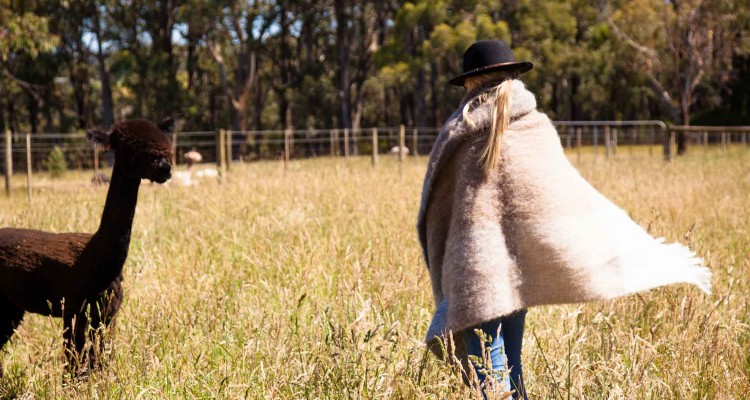Tucked away in the Mornington Peninsula hinterland, Jean and David Daddo own a 25-acre parcel of paradise, surrounded by protected bushland and shared with koalas, wallabies, echidnas, magpies, kookaburras; pet kelpie, ducks and geese. Oh, and their ninety-odd alpacas.
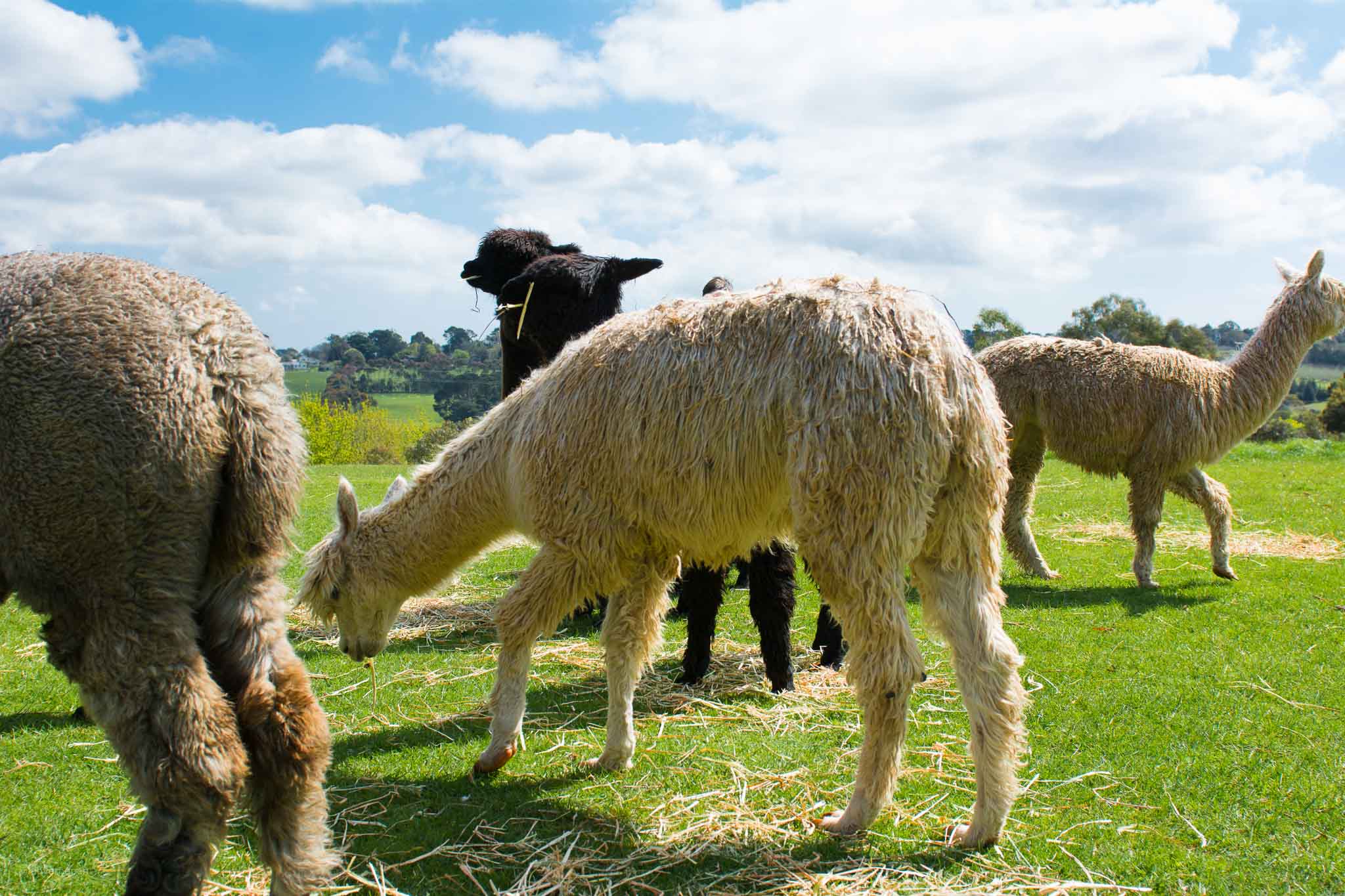
The couple came to Red Hill in 1995 for a new lifestyle. They brought with them two female alpacas they had purchased and kept on an agistment property in Dandenong while searching for a suitable property to establish an alpaca farm. In preparation, they attended a couple of workshops to learn how to run an alpaca business, and Jean utilised her background in biological sciences to look into finding the right grasses, soil balances and animal genetics. The Red Hill, rich in minerals, caters to the alpacas taste for variety. They like to graze on nutritious herbs such as plantain and chickory.
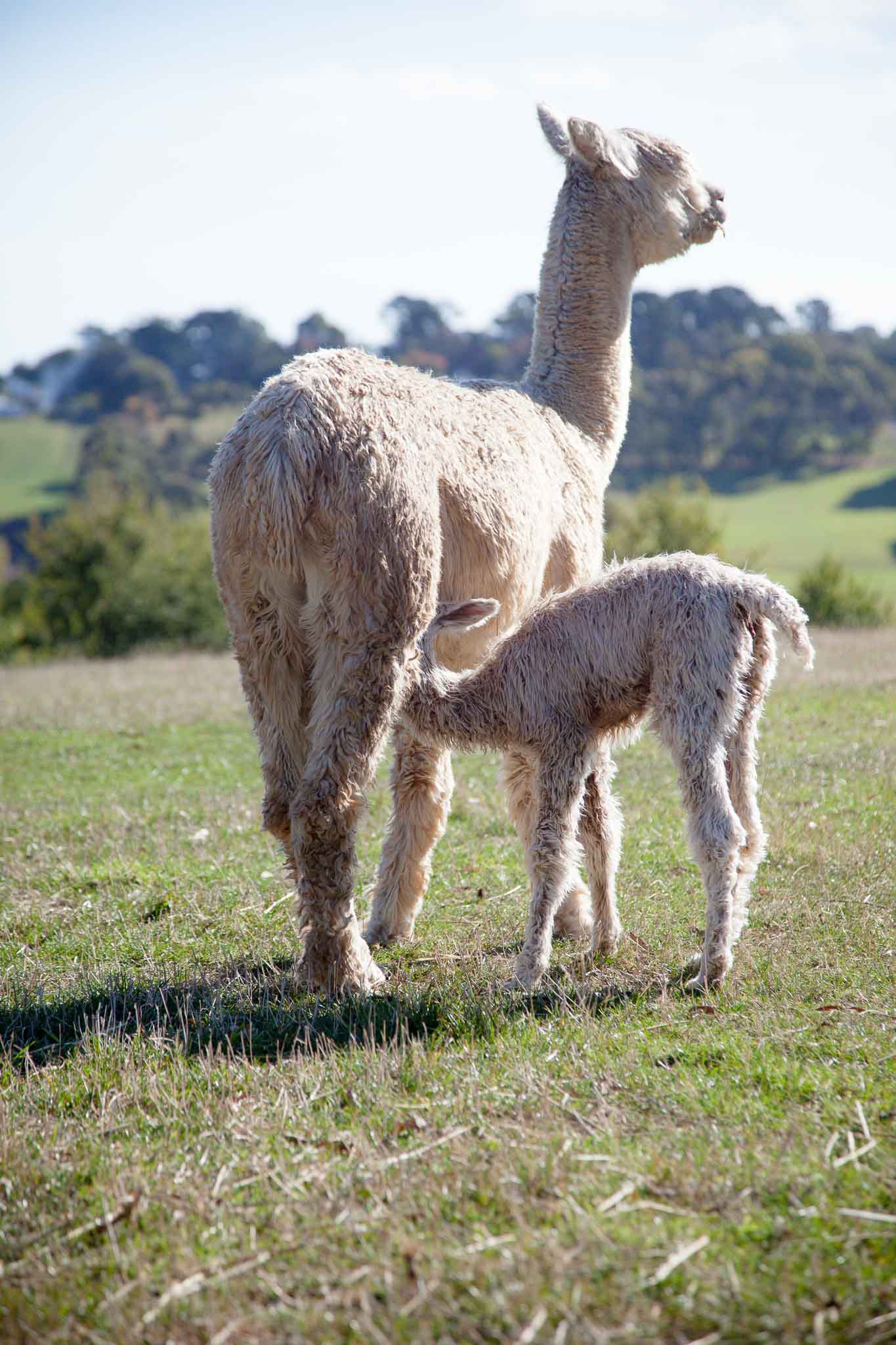
That farm became Pitchingga Ridge Alpacas, ‘Pitchingga’ derived from the Aboriginal word for ‘gum of a tree’ and referencing a significant gum tree with a strong presence on the property. The farm is one of five registered alpaca breeding farms in the hinterland area. Alpacas, a domesticated animal from South America, are smart animals with a lot of personality. Each of the 90 on the farm has its own, distinct personality according to Jean, which keeps things interesting and lively, and utilises her experience as a school teacher. All get along fine with Abby the kelpie, other than Robbie, one of the stud males, who doesn’t much like dogs. They are watchful and warm animals. When Jean handles a newborn, the mother will pay close attention and sometimes rest their head softly on hers as if to say “just please be gentle”.
She is very maternalistic towards the animals and likes to be around for births if possible, to make sure all goes well. The event can be difficult to predict, with a pregnancy of anywhere between 308 and 365 days, but they will sometimes voice their discomfort – and readiness – the night before with a high-pitched hum. Jean and David’s alpacas come in two breeds – Huacaya and Suri – and 12 colours. They breed the animals for sale, mostly within Australia, and for their wool, which is similar to sheep’s wool, but warmer, lighter and hypoallergenic. Wool produced by Huacayas is fluffy and more sheep-like, while Suris have thicker twisted locks, resembling thin dreadlocks. The wool is sold to a company that markets it overseas. Some even ends up in the alpacas native land of Peru, such is the quality available at Pitchingga Ridge. The quality of wool is also the most important element when selling the animals.
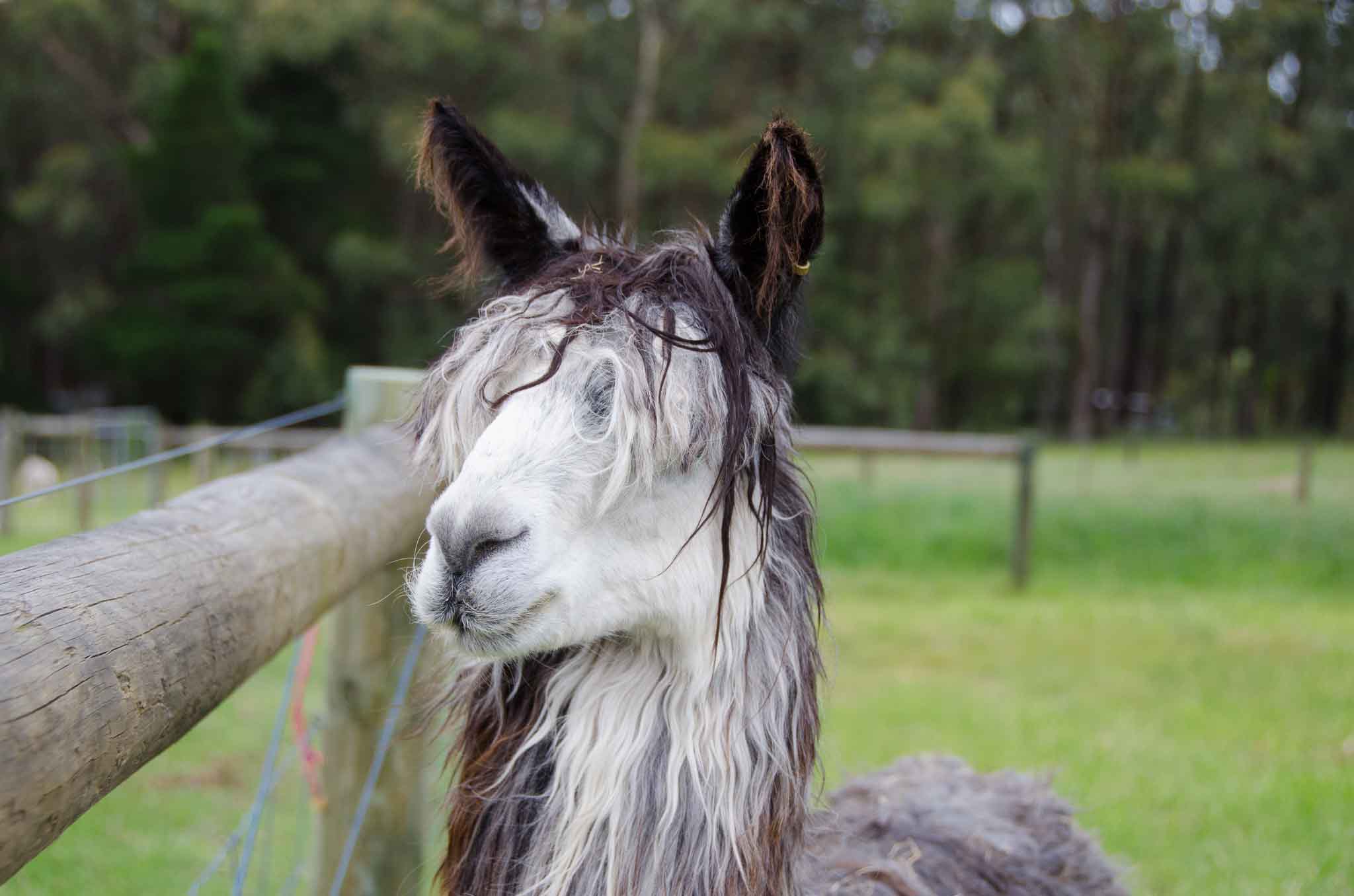
Alpaca wool is used for a range of products including designer garments, Italian men’s suits, doonas by Kelly & Windsor and carpet. Pitchingga Ridge themselves stock raw wool and fleece, knitting yarn, knitwear and throw rugs. Friends couldn’t understand why the couple would want to plod around a farm in rain, shine and mud looking after 100-odd animals. For Jean and David, it’s simple – they love it. They love the environment and they love the animals. Even after 17 years Jean says she doesn’t feel any great need for a holiday because the farm still feels like a holiday from the metropolitan life they used to know.
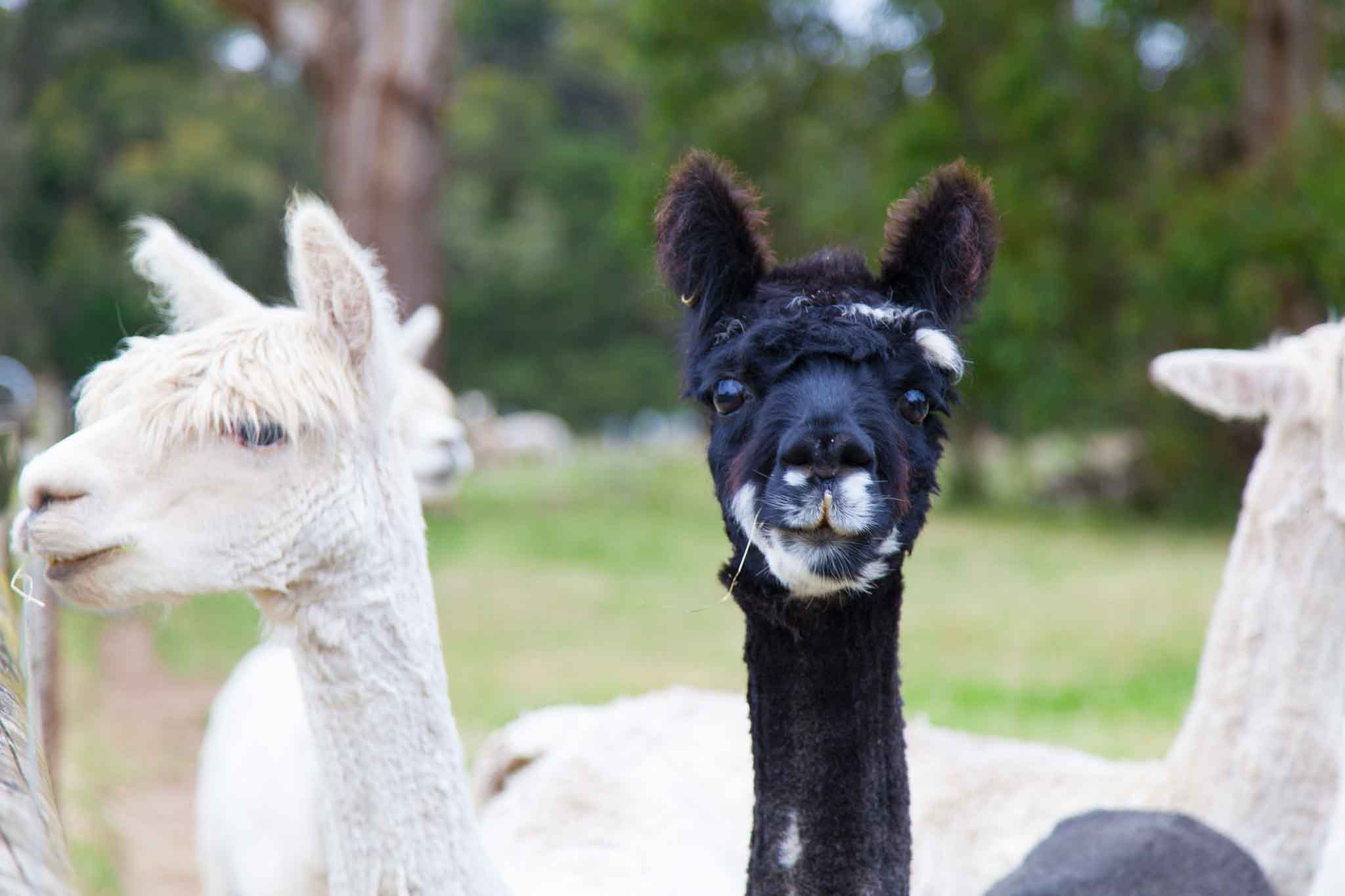
That’s not to say it’s an easy life. Each day they check and respond to emails from customers and check the animals. In summer – which is the farm’s downtime – they cut hay, in autumn arrange coupling for mating season and fertilise the land, and in spring it’s time to shear the 90 alpacas. Being native to areas with a significantly higher exposure to UV rays, the alpacas also require injections of vitamin-D three times a year. And between all of that, they find time to showcase their alpacas at various shows and competitions across Victoria, where they have won a flock of awards. At the end of the day, Pitchingga Ridge is a beautiful and lively piece of land, and Jean and David couldn’t be happier with their life there.
Bookings are essential and available Fridays and weekends.

